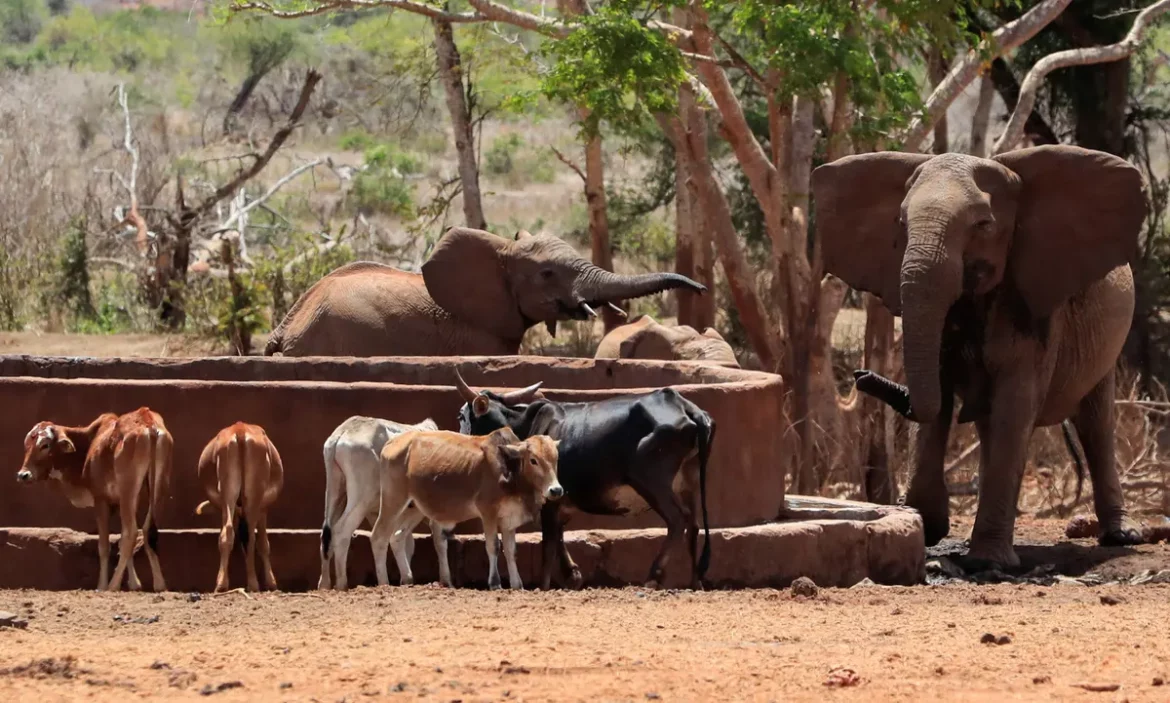New research has revealed that the climate crisis is resulting in an increase in conflicts that result in harm or death for both humans and wildlife, from blue whales crashing into ships to African elephants raiding crops in villages.
Food, water, and wholesome habitats are becoming more scarce due to the climate crisis, forcing animal and human populations into new habitats or areas that weren’t previously inhabited. Additionally, it is altering how they act. According to a review paper led by the University of Washington, this will lead to an increase in conflicts between people and wildlife, as well as damage to private property and a loss of livelihood for individuals.
The team looked at 30 years of research and found that the number of studies linking climate breakdown to the conflict had quadrupled in the past 10 years compared with the previous two decades. They warn of an “extraordinary breadth” of places already affected.
The paper, published in Nature Climate Change, looked at 49 cases of human-wildlife conflict on every continent except Antarctica, and in all five oceans. From 2.5mg mosquitoes to 6,000kg African elephants, conflicts involved all major wildlife groups – birds, fish, mammals, reptiles, and invertebrates.
Read Also: liverpool-becomes-first-uk-city-to-sign-paris-climate-agreement
Changes in temperature and rainfall were the most common drivers of conflict, cited in more than 80% of case studies. The most common outcome was injury or mortality to people (43% of studies) and wildlife (45% of studies). Conflicts are defined as direct interactions between humans and wildlife that have a negative outcome for one or both.
“We were surprised that it’s so globally prevalent, this was one of the big takeaways of this paper,” said the lead researcher, Briana Abrahms, a wildlife biologist from the University of Washington.
“There hasn’t been as much recognition as there should be that climate change is exacerbating these conflicts,” she said. “We might see new conflicts in places they haven’t been in the past, as well as conflicts intensifying in places they have been in the past.”
Human-wildlife conflicts are already a leading cause of decline and extinctions among large mammals, which can trigger changes in ecosystems, according to the paper.
Story adapted from The Guardian
